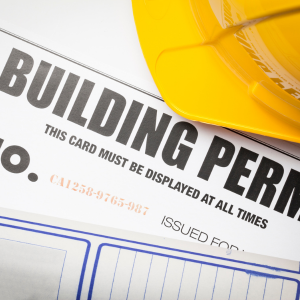
Condemned House Requirements in Washington: Understanding Condemnation Law on Condemned Property
Understanding the complexities of condemnation law is crucial for anyone dealing with condemned properties in Washington. These laws determine when a property is deemed unfit for use, set the guidelines for necessary repairs, and outline the rights of property owners. Navigating the legal requirements can be daunting, especially with varying regulations across different municipalities. This guide aims to demystify the condemnation process, providing clear insights into the essential requirements and legal obligations in Washington. Whether you are a property owner, potential buyer, or legal professional, understanding these laws is vital to ensuring compliance and safeguarding your interests.
Understanding Condemnation Law in Washington
The laws in Washington governing property condemnation play a crucial role in protecting public welfare by managing properties deemed unsafe or uninhabitable. Washington’s state laws ensure condemned properties meet specific safety and building standards. When a property is labeled uninhabitable, it triggers a condemnation notice, signaling the need for action, often involving a government agency. Property owners face unique challenges due to these regulations, particularly around relocation assistance and the legal obligations tied to compliance. Understanding Washington’s condemnation law is critical for property owners to navigate these complexities effectively and to ensure compliance with all municipal and state requirements.
The Role of Washington State in Housing and Condemnation
Washington state plays a significant role in managing condemned properties through its state laws and regulations. A government agency, often in collaboration with local municipal authorities, issues a condemnation notice when a property is found in uninhabitable conditions. This notice serves as a formal designation, turning the property over to the state’s authority to ensure compliance with safety standards. One of the key factors driving condemnation is the state’s commitment to maintaining safe housing environments. The authority to declare a building unsafe comes from regulations enforcing clear safety and health standards, upheld by agencies operating under Washington law. This rigorous oversight means property owners must meet specific criteria, often requiring substantial repairs or structural changes to return buildings to acceptable conditions.
This state intervention is crucial in preserving the integrity of housing; by enforcing safety compliance, it seeks to safeguard residents’ welfare. However, this level of oversight can be challenging for property owners. They must navigate not only the emotional aspects of losing a property but also the financial burdens associated with meeting the standards set forth by state laws. The government’s primary aim is to ensure no resident lives under potentially harmful conditions, thus maintaining a balance between individual property rights and public safety.
For property owners, understanding their responsibilities is crucial. They must actively engage with municipal authorities and seek guidance from organizations like MRSC, which offers valuable resources and relocation assistance. By following state and local laws, property owners can reduce penalties and help maintain community safety. MRSC’s tools also make complex legal requirements easier to understand, giving property owners essential support throughout the condemnation process. This cooperative effort among government agencies, property owners, and MRSC helps ensure safe, habitable housing across Washington. And for those seeking an alternative solution, we buy houses cash in Washington, providing property owners with a fast and reliable way to move forward.
How Condemnation Affects Property Owners

For property owners in Washington, facing condemnation can be a daunting experience filled with numerous legal and practical challenges. When a property is designated as condemned, the impact extends beyond safety concerns to significant financial and emotional repercussions. Property owners must grapple with complying with state laws, which require addressing the specific uninhabitable conditions cited in the condemnation notice. Relocation emerges as a central issue, as property owners might need to find alternative housing solutions either temporarily or permanently. Washington law mandates providing adequate relocation assistance, ensuring affected owners and tenants can transition smoothly.
Beyond the immediate logistical hurdles, there are also broader implications concerning property values and marketability. A condemned property typically sees a dip in its market value due to its uninhabitable status, impacting an owner’s ability to sell or leverage it. These financial challenges are compounded by the costs associated with renovating or restoring the building to meet safety standards. Engaging with a government agency becomes a crucial step, as owners must understand their rights and obligations under Washington state law. These agencies provide guidance and support, helping navigate the maze of regulations and requirements involved in rectifying condemned status.
Property owners should also consider the strategic angle offered by organizations like MRSC. Utilizing resources from such entities can provide in-depth insights into legal compliance, explore financial assistance options, and help in reinforcing partnerships with local authorities. By approaching condemnation with a proactive mindset and leveraging available resources, owners can not only address the immediate pitfalls but also position themselves strongly for future resolutions. Understanding the full spectrum of effects, from legal obligations to potential long-term impacts on property value, is essential for navigating the challenges posed by Washington’s stringent condemnation laws effectively.
Identifying a Condemned Property
Understanding the characteristics of condemned properties is crucial for addressing the challenges they present. In Washington, state laws focus on ensuring safety and compliance in housing, which drives the condemnation of properties deemed uninhabitable. Properties can be labeled condemned due to a variety of uninhabitable conditions, often resulting from neglect or non-compliance with safety regulations. Once a property is condemned, it impacts not only the owner’s legal obligations but also the property’s market value. Recognizing these factors helps property owners take proactive steps to mitigate the effects and adhere to all necessary requirements.
Characteristics of Uninhabitable Homes
In Washington, identifying a home as uninhabitable involves assessing various key criteria that govern housing safety and compliance. Often, a property is deemed uninhabitable due to significant structural deficiencies or severe violation of state laws and building codes. Examples include compromised roofing, extensive water damage leading to mold growth, faulty electrical systems, and hazardous plumbing. These uninhabitable conditions are not just nuisances but pose potential dangers to occupants, prompting regulatory agencies to issue condemnation notices as part of their enforcement of essential safety standards.
The presence of such issues requires immediate attention since prolonged neglect amplifies the risks to residents and potentially the surrounding community. Regulatory bodies identify homes as condemned properties when they fail to meet specific health and safety benchmarks outlined by state laws. Agencies like local housing authorities or a government agency responsible for code enforcement play pivotal roles. They conduct comprehensive inspections to ensure that homes do not become breeding grounds for pests or fall into disrepair, which could exacerbate existing hazards.
The emphasis on maintaining housing safety underscores the state’s proactive stance in preventive measures to curtail any potential decline in living conditions. The journey from identifying issues to addressing them often involves detailed communication between property owners and these regulatory bodies. Property owners might need to engage contractors to rectify identified nuisances swiftly to prevent exacerbation to condemned status. For those owning these homes, understanding the threats posed by uninhabitable conditions, and taking timely corrective action, is paramount.
This not only ensures compliance with Washington’s stringent housing laws but also protects the investments of homeowners and investor home buyers—and, most critically, lives. Ultimately, resolving these issues calls for collaboration with local authorities to restore the property to habitable conditions, preserving its value, protecting investor interests, and contributing to overall community welfare.
The Impact of Condemnation on Property Values
The stigma of being designated a condemned property significantly affects its market standing, as potential buyers often view condemned homes as high-risk investments. When a property is condemned, its value typically plummets, influenced heavily by the cost implications tied to rectifying the cited uninhabitable conditions.
The financial burden can be immense; property owners might face steep expenses for repairs required to meet mandated safety standards as per Washington state laws. Such requirements often compel owners into extensive renovations, which, despite restoring the property’s safety, directly impact profit margins on future sales or rentals. This economic impact is compounded by the perception surrounding condemned properties, where the market reacts cautiously due to the uncertainties associated with future investment returns and the need for substantial upfront restorative work.
A condemned property often requires more than just structural repairs; it demands legal navigation through local statutes and regulations to regain compliance. These processes, while necessary for restoring market viability, involve collaborative efforts with regulatory agencies and possibly longer timelines, affecting liquidity for the property owners. The ripple effect of condemnation on property values extends beyond immediate financial losses. It impacts neighborhood desirability and can sometimes set a precedent affecting adjacent housing markets.
Properties labeled as condemned signal broader issues within neighborhoods, potentially deterring investments unless comprehensively addressed by a cohesive community and government response. Therein lies the importance of proactive engagement with agencies and leveraging resources, such as those provided by organizations like MRSC, to navigate these challenges effectively. By embracing a strategic approach and leveraging insights from community partnerships, property owners not only work toward reinstating value but also contribute positively to restoring neighborhood appeal and stability.
Property Maintenance Requirements
Understanding property maintenance requirements in Washington is crucial for property owners to avoid potential condemnation. The state’s laws and codes mandate maintaining buildings to specific safety standards, guided by comprehensive regulations.
These requirements often involve adherence to municipal and county building codes, which ensure properties remain safe and habitable. The Municipal Research and Services Center (MRSC) provides valuable resources and guidance to property owners striving to comply with these laws.
This section explores essential building codes, state requirements, and resources such as MRSC that support owners in maintaining their properties effectively.
Essential Code and RCW Guidelines for Compliance
Property maintenance in Washington is governed by a complex array of building codes and state laws, emphasizing the importance of compliance for preventing a property from being condemned. The Revised Code of Washington (RCW) is a primary source, providing a legal framework for property maintenance. Essential code guidelines are set to ensure that each city and county within the state upholds uniform standards for safety and habitability.
These regulations address structural integrity, plumbing and electrical systems, fire safety, and overall building conditions. Property owners are required to consistently monitor and manage the upkeep of their properties according to these state laws, reinforcing that neglect can result in serious ramifications, including condemnation notices from a government agency.

One key aspect of these guidelines is the emphasis on maintaining properties to prevent them from falling below minimum habitability standards. The required modifications often include addressing issues such as faulty wiring, leaking roofs, or inadequate sanitation systems. Building codes detail these requirements, and adhering to these is essential for compliance. Each city and county government is tasked with its enforcement, ensuring that properties do not pose health or safety risks to residents or the broader community. Regular inspections are a common practice employed to verify compliance with these requirements. In cases where violations are identified, property owners must take immediate action to rectify shortcomings as outlined under RCW mandates. This proactive approach not only avoids legal issues but also maintains property value and community standards.
Furthermore, RCW and local codes often work in congruence, with municipal authorities implementing state-driven guidelines. This cooperative framework not only holds property owners accountable but also establishes a standard for all properties to promote safe living environments. Owners must remain vigilant about these requirements, utilizing municipal resources and seeking guidance where necessary to ensure their properties meet all legal obligations.
Engaging with city officials or employing professionals knowledgeable in state and local building codes can alleviate potential risks associated with non-compliance. Maintaining a property thus becomes an ongoing responsibility and investment, safeguarding against condemnation and supporting property owners in contributing positively to their communities.
Resources Offered by MRSC for Property Owners
The Municipal Research and Services Center (MRSC) is a vital resource for property owners navigating the complexities of maintaining compliance with Washington’s building codes and state laws. As a government agency resource, MRSC offers comprehensive guidance tailored to assist property owners in understanding and adhering to legal property maintenance requirements. Accessing these resources can significantly ease the burden on property owners by providing detailed insights into the otherwise daunting landscape of state and municipal regulations. MRSC’s role is instrumental in helping property owners decipher the myriad of guidelines that affect residential and commercial property maintenance across various counties.
One of the core benefits MRSC provides is its extensive library of materials, which includes information on building code revisions, legal updates, and case studies illustrating successful compliance strategies. These resources help property owners identify required maintenance actions specific to their city or county. Moreover, MRSC facilitates access to expert consultations where property owners can seek personalized advice on how to tackle complex maintenance challenges. This assistance is crucial, especially when facing potential condemnation, as it empowers owners with knowledge and strategic action plans that align with municipal and state laws.
Additionally, MRSC’s resources extend to offering workshops and webinars that delve into property maintenance best practices, fostering a well-informed community of property owners. Through these educational platforms, MRSC promotes proactive approaches for maintaining properties, thereby preventing legal issues under RCW mandates.
By working closely with city and county officials, MRSC helps align property maintenance standards across different jurisdictions, ensuring consistency and fairness in enforcement. This collaboration allows property owners to shift from a reactive stance to a proactive approach, preserving property values and reducing the risk of condemnation issues. Partnering with MRSC not only supports compliance with regulations but also strengthens property owners’ roles as guardians of community safety and quality standards. And for those facing difficult property challenges, Sell My House Fast For Cash buys houses for cash in any condition, offering a straightforward solution when maintaining or restoring a property is no longer practical. Contact us today for help.
Steps to Take When a Property is Condemned
When a property in Washington is condemned, it’s crucial for owners to understand the necessary steps to navigate this challenging situation. From receiving the condemnation notice to reaching a resolution, numerous actions must be taken to comply with state and local laws. This section will explore key actions to take, focusing on understanding your legal obligations and rights. By addressing these steps thoughtfully, property owners can manage the condemnation process more effectively and work toward resolving any issues to restore the property to a habitable condition.
Understanding Legal Obligations and Rights

Navigating the legal landscape following a condemnation notice requires a thorough understanding of your obligations and rights. In Washington, being informed about the specific reasons for condemnation and the regulations involved is the first step. When a property is condemned, state laws and local codes dictate the necessary compliance measures. Property owners must diligently review the condemnation notice, which details the violations identified by a city or county authority. Frequently, the notice will cite violations related to safety hazards, building code deficiencies, or structural integrity issues that must be addressed to avoid further action.
Once the notice is received, property owners must act quickly to rectify the identified deficiencies. Engaging with a legal expert specializing in condemnation law is advisable to understand the nuances involved. These professionals can help decipher complex state laws and provide clarity on homeowner rights. It’s important to know that, even though the law may seem daunting, there are provisions designed to protect property owners and ensure fair treatment throughout the process. For example, property owners have the right to receive proper documentation detailing why the condemnation was issued, and they are entitled to appeal decisions within a specified timeframe.
Another critical aspect is understanding the opportunity for negotiation with local authorities. Approaching the matter with a cooperative mindset can often lead to favorable outcomes, such as extensions for compliance or a phased plan for addressing repairs. Legal obligations also extend to potentially securing relocation assistance, particularly if tenants occupy the property. This assistance, mandated under Washington laws, ensures tenants can move without undue hardship. Relocation support is typically part of the broader compensation package available to occupants of condemned properties.
Furthermore, property owners should explore resources offered by the Municipal Research and Services Center (MRSC). This organization provides comprehensive materials and guidance, assisting owners in understanding their rights under Washington state laws. The MRSC’s resources are invaluable for navigating local and county requirements and ensuring compliance with all regulations. By fully grasping these legal aspects and leveraging available support, property owners can effectively address condemned status, work toward compliance, and protect their investment.
Understanding the condemned house requirements in Washington is crucial for property owners aiming to navigate potential condemnation. Familiarity with local statutes and knowing the legal rights and responsibilities can ease the process and help in making informed decisions. Whether facing eminent domain or structural concerns, staying informed empowers affected parties. Seeking legal counsel is often a smart step, ensuring all actions align with state laws and protecting property interests effectively. With due diligence and the right strategy, property owners can manage condemnation effectively, turning a challenging situation into an opportunity for prudent decision-making.
Helpful Washington Blog Articles
- Duration To Live In A Washington Home Before Selling
- Sell Shares Of Your Home In Washington
- Selling A House With Mold In Washington
- Selling A Home With An Active Lawsuit In Washington
- Delinquent HOA Dues In Washington
- Fixing Up a House to Sell in Washington
- Can You Sell House with Tenants in Washington
- Best Time To Sell A House In Washington
- How to Sell a House with Title Issues in Washington
- Condemned House Requirements in Washington
- Refinance A House After Divorce in Washington

